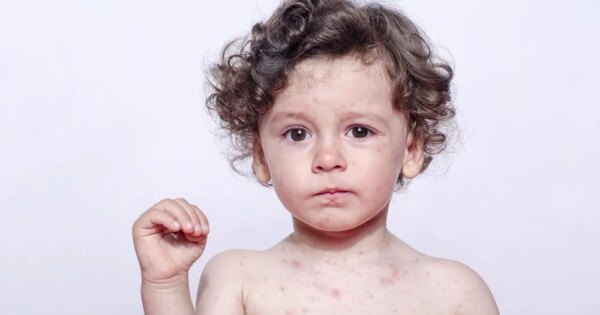As parents we talk about our kids a lot. We talk about them to our family, to our friends and even to the cashier in the grocery store. Words have a lot of power, especially when they are used as describing words. Sociologists explain labeling theory as the theory that self-identity and behavior may be determined or influenced by the words used to describe them. Kids absorb everything they hear and those descriptions can stay with them for life. The describing words don’t even have to be negative to have a negative impact on them. Here are 18 words that should never be used to describe your children and why they are not beneficial.
18. Selfish
Kids are naturally self-centered. Selfishness, however, presumes maliciousness. It’s important to keep in mind that kids are still learning and developing their understanding that other people have feelings and needs different than their own.
They aren’t trying to be mean and self-centered, they just need to learn that it’s not all about them. It’s still crucial that they understand how their actions affect others. Calling them selfish will not help them to understand that concept.
17. Bad
I always try to tell my children there are no bad kids, only kids who do bad things. Labeling a child as bad can have a lasting impact on them. Once a kid becomes the “bad kid” they can start to see themselves as unlikable and unable to be or do good.
They feel shame and eventually will feel like there isn’t a point in trying to be good. Encouraging your kids by always telling them they are a good kid who has just done a bad thing will help to label their action instead of making it become who they are.
16. Smart
I know we all like to brag about our kids, especially if we think they are a born genius! But describing your child as smart can put strong expectations on your child that they cannot live up to. They may feel like because they are smart they should be able to understand everything and they will eventually struggle with feelings of failure and perfectionism.
It’s better to acknowledge the actual task they did instead of leaving it as a broad statement. Saying something like “that was really great how you were able to solve that puzzle” will limit it to that specific circumstance.
15. Stupid/Dumb
This may seem like a no brainer, but it needs to be said. Describing your child with any word even remotely close to stupid will be damaging. Once a child thinks of themselves as stupid they will most likely stop trying as they will believe that it’s not worth it.
Most kids even know that’s not a word to call other kids, so to hear it from an adult will be extremely demeaning. And I get it, sometimes kids do things and you wonder what they were thinking at that time. You may be tempted to ask why they were so stupid. Instead ask about the action, not them, for example, “Did you think that was a wise decision?”.
14. Spoiled
Lots of kids will grow up to be well adjusted adults when they are given everything they’ve ever wanted. It’s ok to give your kids things. But don’t call them spoiled if they happen to get everything they ask for and act entitled. It passes on the blame for who is really at fault…the parent!
The term spoiled is used as an insult way too often. A kid can whine for everything they want, but they are not the one giving it to them. If you don’t want your child to be spoiled then ensure that you not giving them a reason to be.
13. Accident
A lot of times parents who have had an unplanned pregnancy will refer to their child as an accident. When I announced we were having baby number 4, I had a lot of people ask me if the baby was planned or an accident. I find that word to be so negative.
I hear parents joke about this all the time, but it can be very insensitive. Even if your child was unplanned they really do not need to know that, and especially don’t need to be described as the accident which can lead them to feel like they may not be wanted.
12. Disappointment
I get it that sometimes our kids can let us down. But I know I disappoint my kids on a daily basis just by saying the word “no”. I would hope that they don’t consider me a disappointment as a mother.
It’s ok to be disappointed by their behavior or actions, but that doesn’t need to be who they are. I’ve heard this a lot when kids don’t live up to their parents’ expectations of them and it leads to a life of trying to constantly please their parents and others.
11. Fat
I think most people are careful with this word these days, but it still needs to be said. Calling your child fat is never ok. It’s ok to remind your children that everyone has fat and it’s important for our bodies to have fat on them to function. But labeling a child as fat makes them feel like that is who they are and that their appearance defines them.
It can really send children down a dangerous path of low self-esteem, eating disorders and unattainable goals. Teach your children the importance of having a healthy body without making it about appearance.
10. Skinny
You may think this one is ok because, according to society’s standards, skinny is good. Much like the previous point, as soon as you start describing your child based on their appearance it’s easy for them to feel like they are letting you down if they no longer look that way.
If your child has always been described by you as skinny, whether it’s in a positive or negative way, they will wonder how you feel about them if they are no longer skinny. If they put on weight, will you still love them? This can create a fear of gaining weight and can also lead to low self-esteem and eating disorders.
9. Weak
Weak is such a demeaning term to describe a child. It’s ok to refer to your child as weak if you are describing a symptom when they are sick. But I have heard plenty of parents call their kids weak if they don’t stand up to a bully, or weak compared to the kid who is strong enough to lift another kid when their child cannot.
If you want your kid to be strong, both emotionally and physically, then start describing them that way. If you call your kid weak it’s not usually going to motivate them to keep trying.
8. Liar
Kids lie! I think it’s just a natural learning curve for children. Especially when it’s to cover up something they have done wrong. But again, this goes back to labeling the behavior, not the child. Telling your child that they were lying is ok. Labeling them as a liar implies cruel intent. Once your child is described as a liar they will be perceived as unreliable and untrustworthy.
We all know about the boy who cried wolf. It’s a great story about the importance of telling the truth and can give a great example to children. This lesson can be taught by talking about his lies and the consequences without calling him a liar.
7. Heartbreaker
You’ve probably all seen those cute little onesies and kids’ shirts that say things like “Little heartbreaker”. While they seem cute, and I’m sure no one means any harm by it, let’s think about what that word really means and implies.
When you are calling your child a heartbreaker, you are saying your child breaks people’s hearts. Not so cute anymore! Just think about how you would feel if your kid truly was going around breaking people’s heart. Not to mention the fact that you are attaching a label to your child that is well beyond their years.
6. Bossy
How about we start describing our little ones as leaders instead of bossy. While we want to ensure they are leading with kindness and inclusion, we don’t want to shut down their potentially natural tendency to lead. And the word bossy is rarely meant as a compliment.
Instead of using words like bossy try finding a word that encourages them to lead without treating others in a mean way. Words like leader, assertive and eager. If your child is in fact acting “bossy,” try pushing them towards the positive ways they can lead and be assertive without coming across in a negative way.
5. Crybaby
Sometimes kids can cry and cry for a reason as ridiculous as the wrong plate color. It feels like they are crying for nothing and I get that it can be frustrating and annoying, especially if your kids cry a lot. But calling them a crybaby (especially boys) can force them to close themselves off.
They may feel like you are no longer a safe person to show their emotions around. Crying is a natural response and it’s ok for them to cry. Help them to find ways to express themselves better if crying becomes a problem. I encourage my kids to find their words if their crying is excessive.
4. Mistake
Ouch! This one hurts a lot just to write, so imagine how crushing it would be for a child to know they are being described as a mistake. You may think this is the same as calling them an accident, but it is much harsher. An accident is more like an unplanned “oops.” A mistake implies regret. And a child can still be described as a mistake when the parents had planned to have them!
A child who feels like their parents regret having them will be crushed and will struggle to feel wanted and loved. They may feel like they don’t have a place in the world. They can see themselves as a mistake in everyone’s eyes too not just their parents.
3. Shy
Some kids are definitely more quiet and have introverted personalities. It’s ok to not want to interact with a lot of people and it’s important to respect the sensitivity of your child. But I’ve seen way too many kids labeled as shy and use it to get out of doing things, to avoid manners (a basic please and thank you is not too much to ask) and to completely ignore people.
I think that shy can be used as an excuse to cover up our kids being rude. I never force my kids to hug, kiss or touch someone in any way, but I still expect manners. If your kids refuse to say “thank you” when someone gives them something parents can easily brush it off as them just being shy. Teach your kids to find a healthy balance instead of giving them a lifetime excuse.
2. Any Swear Word
No need to list them all here…I’m sure you could think of a few words I’m referring to. Describing your child using any sort of bad language is a big no! They are harsh and are usually not used in a loving way.
I see them more often on social media over actually saying it to the child. Parents may think it sounds relatable and trendy to call their kids names when they are complaining in their status, but it’s important to remember that someday your child may see that status! It’s also not presenting your child in a very loving way to the public eye.
1. Mean
I try to use this word the same way that I use the word bad. The kids aren’t mean, they are doing mean things. It goes back to labeling theory and once a kid becomes labeled “the mean kid,” it’s hard for others and themselves to see kindness.
A lot of times kids really aren’t mean, but they are being mean to cover up other issues. Kids can say mean things to others to feel better about themselves. While it is not nice to treat others poorly, instead of describing your child as mean you can simply say they are not behaving very nice, focusing on the action not the child.





















